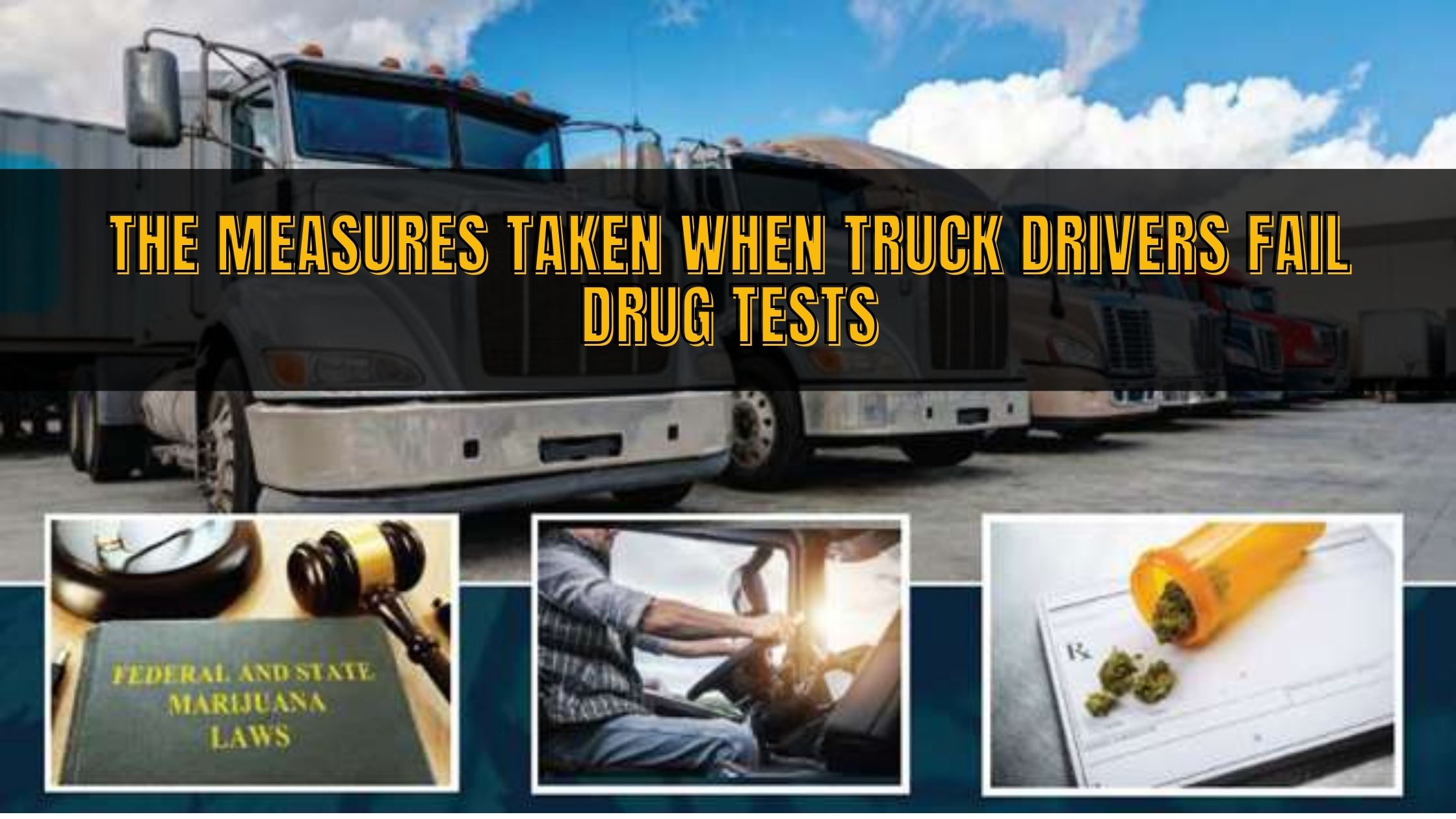The Measures Taken When Truck Drivers Fail Drug Tests

10/23/2023 19:13
Drug use in the commercial trucking industry is a concerning issue that has garnered increased attention in recent years. With the safety of both drivers and other motorists on the line, it is crucial that truck drivers maintain a clear mind and remain drug-free while operating their vehicles.
However, despite strict regulations and consequences in place, drug use among truck drivers still persists. This raises the question, what measures are taken when truck drivers fail drug tests?
In this article, we will delve into the procedures that are followed when a truck driver fails a drug test, including the legal implications, consequences for the driver, and steps taken by trucking companies to prevent future incidents.
Additionally, we will explore the role of drug testing in the trucking industry and its impact on ensuring safe roads for all. With safety-sensitive functions and safety-sensitive duties being the top priority, it is crucial to understand the measures that are in place to address drug use among truck drivers and the steps being taken to prevent it.
QUICK TIP:
Do you want to focus more on your daily operations? It is convenient and practical to be part of a Consortium/Third-Party Administrators (C/TPAs) like Labworks USA to manage all, or part, of an employer's DOT drug and alcohol testing program and other DOT or FMCSA compliance needs. THIS WILL YOU A LOT OF TIME AND RESOURCES that you can redirect on any unprecedented additional expenses. We perform tasks as agreed to by the employer to assist in implementing the drug and alcohol testing program and to help keep the employer compliant with the DOT/FMCSA Drug and Alcohol Testing rules and regulations. We as a DOT Consortium can help you.
____
ATRI Study Shows Many Aren’t Taking Steps to Return
According to the Federal Motor Carrier Safety Administration (FMCSA), the implementation of the Drug and Alcohol Clearinghouse has successfully removed a significant number of drivers who have been caught using drugs from the roads. However, there is a persistent concern regarding the 146,000 drivers who remain in prohibited driving status after failing their drug tests.
It appears that most of these drivers are not enrolling in the required return-to-duty agency process, as stated by the FMCSA. Instead, they seem to be leaving the profession amidst a driver shortage.
Despite the American Transportation Research Institute's recent research report on driver marijuana test failures, the FMCSA claims that it does not have its own research yet to explain why the majority of drivers who test positive for substances appear to be seeking alternative career paths, possibly for lower wages.
Marijuana is a particularly challenging issue, as truck drivers are strictly prohibited from using it. Even a single instance of marijuana use can lead to a failed drug test. In such cases, drivers must successfully complete a return-to-work program, which involves evaluation by a substance abuse professional, participation in a treatment program, and passing a follow-up drug test.
It is worth noting that the number of drivers testing positive for marijuana use continues to rise. Since the Clearinghouse opened in January 2020, 127,356 drivers have tested positive for marijuana as of the end of August. By August 2022, the number of drivers testing positive for marijuana had reached 88,648.
The FMCSA acknowledges that the Drug and Alcohol Clearinghouse has effectively identified drivers who are not legally authorized to operate commercial motor vehicles due to drug or alcohol tests violations. Since January 2020, over 207,000 commercial drivers have had at least one violation reported to the Clearinghouse.
However, the FMCSA does not have its own data or research to explain why drivers with Clearinghouse violations have not initiated the available return-to-duty process, nor does it have information on the types of work these individuals pursue after being prohibited from driving commercial motor vehicles.
Anecdotally, the FMCSA has received reports from drivers stating that many motor carriers have zero-tolerance policies and do not consider applicants who are in the return-to-duty process and require follow-up testing.
In Conclusion
While the Drug and Alcohol Clearinghouse has been effective in identifying and removing drivers with drug or alcohol violations, there remains a significant number of drivers who have not begun the return-to-duty process. The reasons behind this and the alternative career paths chosen by these drivers are still not fully understood.
Here are the common terms you can type on any search engines like Google, and make sure you are familiar with it:
Duty drug, pre-employment drug test, DOT drug tests, drug screening, reasonable suspicion, positive drug tests, negative drug, treatment plan for truckers, alcohol testing, alcohol screening, valid prescription, random testing, post - accident, federal regulations, pre-employment screening, influence of drugs, policy for drugs, restricted drug, testing for drugs, duty program, alcohol programs, alcohol testing program, substance abuse tests, driver from safety, initial evaluation of truckers, follow-up evaluation of truckers, and federal rules.
Quick Tip: Here's a list of DOT Consortium services we offer at Labworks USA with respective rates that can be your reference to have better expense projections.
If you want to stay updated with a wide range of trends, actionable insights, and innovative solutions in the trucking, freight, and logistics industry, stay connected to us.
Moreover, are you looking for a company to help you to stay DOT and FMCSA compliant? We at Labworks USA can support you.
_____
If you are looking for more information about drug and alcohol testing as a truck driver, visit LabWorks USA. Our DOT Consortium's friendly team will be more than happy to discuss any concerns you may have and work with you to ensure you are always fully compliant specially with random DOT drug and alcohol testing pre-employment testing. Moreover, if you need help with FMCSA Clearinghouse registration, we can further support you.


